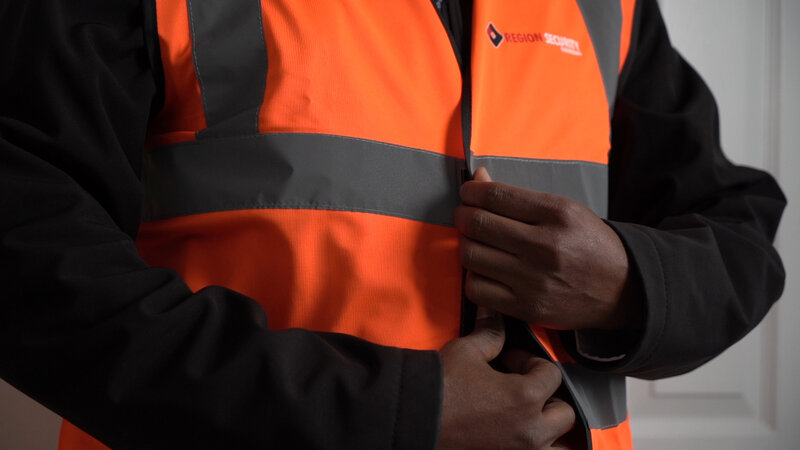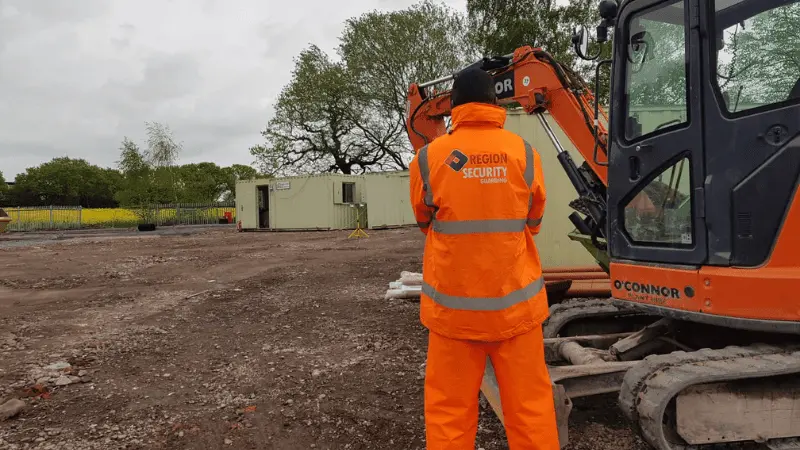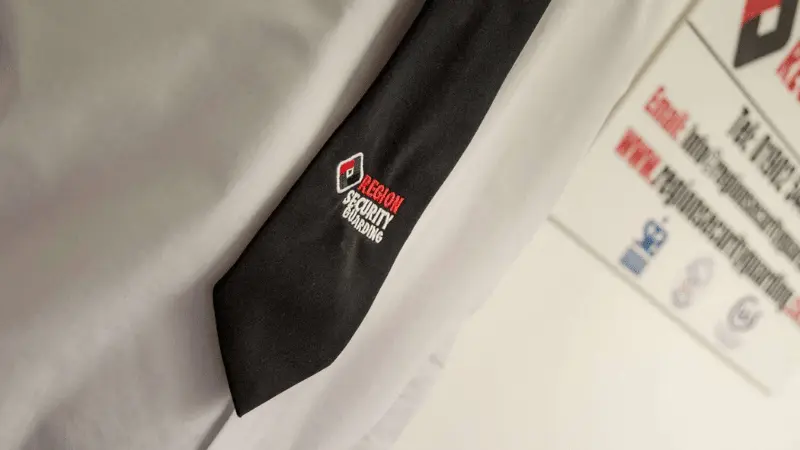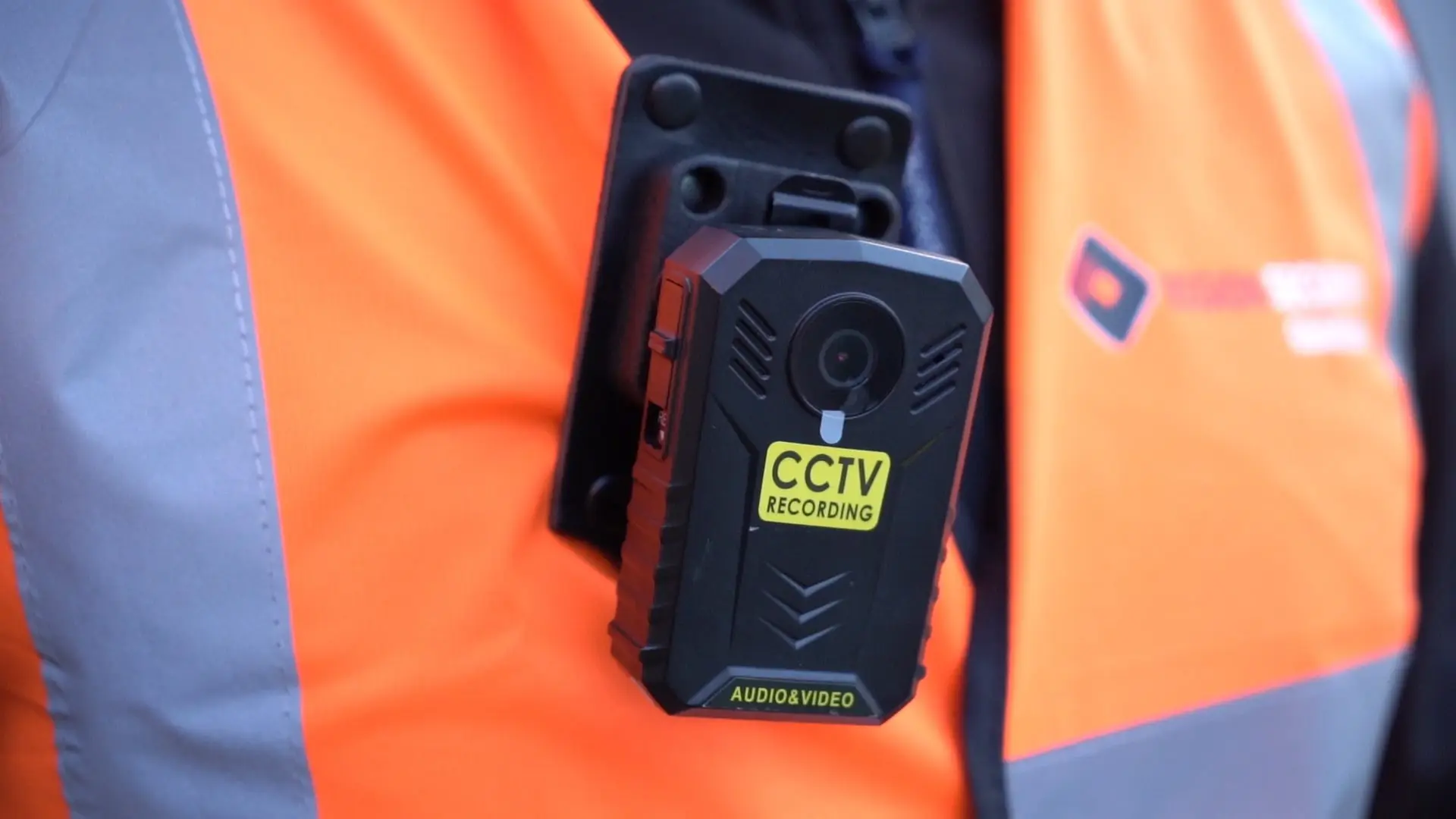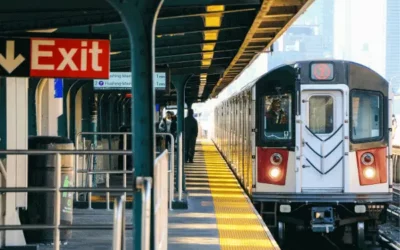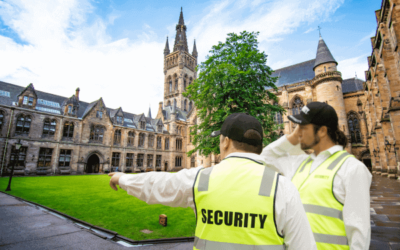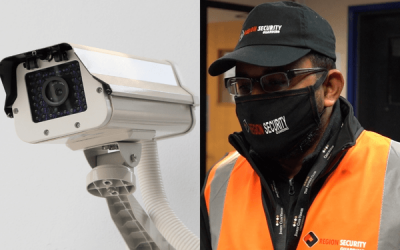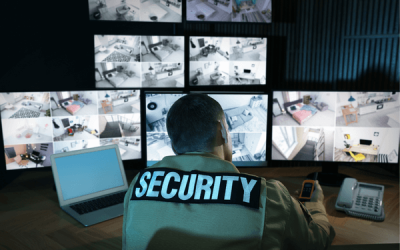Contents:
- Why Install CCTV?
- Who Can Install CCV Camera?
- Do I Need A Licence To Install CCTV?
- How Much Does It Cost To Install CCTV Cameras?
- How Long Does It Take To Install CCTV?
- What Are The Things Need For CCTV Installation?
- CCTV Camera Placement Guidelines
- How To Install CCTV Cameras At Home
- Where To Install CCTV At Home
- Is It Legal To Install CCTV At Home?
- Is It Worth Installing CCTV At Home?
- Installing CCTV Cameras Outside
- How To Install CCTV Camera Outside
- How To Install CCTV Camera: Top Tips
In an age where security is paramount, having eyes on your property can provide unparalleled peace of mind. Knowing how to install CCTV camera can be a game-changer.
However, the prospect of installing CCTV can seem daunting, from the technical jargon to the variety of security camera options. That’s why we’ve created our guide, where we’ll walk you through considerations such as where to install security cameras at home and who can install them.
With each camera you install, you’re not just adding a piece of equipment. You’re reinforcing the defenses of your home or business. Let’s dive in and start building a stronger, safer environment for your premises.
Why Install CCTV?
The decision to install CCTV camera is a proactive step towards protecting what matters most. Whether you need construction security or protection for your retail store, installing CCTV cameras offers unparalleled peace of mind and a powerful deterrent against potential threats.
Beyond the immediate benefits of surveillance, installing CCTV carries crucial implications for security and the overall well-being of your environment. Alongside other powerful security solutions such as security guards, installing CCTV camera is a proactive measure that addresses various security concerns effectively.
By deterring criminal activity through their visible presence, these systems offer a robust defense against potential threats. They also offer continuous surveillance, enabling swift detection and documentation of any suspicious incidents. This not only aids in catching perpetrators, but also serves as valuable evidence for legal and insurance purposes.
In business settings, CCTV camera installation also promotes accountability and productivity. This contributes to a safer and more efficient work environment. Ultimately, the sense of security provided by these security systems allows you to confidently protect your property.
Who Can Install CCTV Camera?
It is legal for anyone to install CCTV cameras on their property. Any homeowner or business may choose to install security cameras to help protect their home or business from intruders and keep their property and those in it safe.

Do I Need A Licence To Install CCTV?
In many regions, installing CCTV cameras doesn’t typically require a specific license for residential or small-scale commercial use. However, regulations around security camera installation can vary depending on local laws and policies. While homeowners generally have the freedom when it comes to installing CCTV on their own property without a license, certain considerations may apply to larger-scale installations or those in public areas.
That’s why one of our top tips for installing CCTV cameras is to research and understand the legal requirements and any regulations specific to your location before installing your cameras. Consulting with local authorities or seeking guidance from professionals in the field can help ensure you comply with these and avoid any legal issues.
How Much Does It Cost To Install CCTV Cameras?
There is no one set cost for installing CCTV cameras. The cost can vary significantly depending on several factors, including the number of cameras, the type of cameras selected, and additional features such as night vision capabilities. It’s important to consider not only how to install CCTV camera, but also the purchase of any additional equipment such as wiring, storage devices, and monitors.
Ultimately, the total cost of CCTV camera installation will be influenced by the specific needs and requirements of the property, as well as the level of security and surveillance coverage you require. For example, someone who requires CCTV in a school might require different cameras from a homeowner. We’ve listed some of the key factors to consider when installing CCTV below…

Number Of Cameras
When considering your CCTV camera installation, a crucial factor is working out the number of security cameras you’ll need. Each extra camera installed will increase the overall cost.
Type Of CCTV Camera
There are a wide variety of cameras to choose from when it comes to installing CCTV. From dome cameras to night vision cameras, it’s important to do some research to help you identify the best types of cameras for your needs. Another thing to consider is that more advanced security cameras with extra features are likely to cost more.
You can read more about the most popular types of CCTV cameras in our guide to CCTV security.
Type Of Property
If you live in an older property, it may cost more to install CCTV cameras due to the nature of the building. This is particularly likely if you live in a listed building where extra care is needed.

How Long Does It Take To Install CCTV?
The time it takes to install CCTV cameras can vary depending on several factors. These can include the number of cameras being installed, the complexity of the installation and the type of cameras being used.
This is why one of our key tips for installing CCTV cameras is to consider your individual needs. Overall, the time required for CCTV installation depends on the specific requirements of the project and the expertise of those involved.
What Are The Things Needed For CCTV Installation?
When it comes to how to install CCTV camera, one of our top tips is to walk around your home, planning the layout of your security cameras. This will help you identify where your cameras should be located in relation to the power sources.
It’s also important to organise data storage when installing CCTV. Video footage recorded from your cameras can take up a lot of of space. It should be stored somewhere safe and reliable, where you can easily access it. Being able to access past recordings is crucial in case you need to check who has been near your property.
When it comes to security camera footage, the most common storage methods are cloud storage, on a video recorder within your home, or on SD cards in the CCTV cameras themselves. If you have cameras that record in high definition, this will also take up more space.

CCTV Camera Placement Guidelines
Some areas of your home or site will be easier to place the cameras on when it comes to CCTV camera installation. Certain locations such as high up on walls may require more work and will take longer, costing more money.
How To Install CCTV Cameras At Home
When it comes to how to install CCTV camera at home, there are a couple of ways you can do this. You can install the security cameras yourself, or you can employ a security company or an expert to do the installation for you.
Due to the high-tech nature of many of today’s cameras, and the various types of CCTV cameras available, they can be complex to set up. For example, some may need to be drilled into the wall. Or if you’ve chosen to install a wired camera, you’ll also need to run the wires to a power source.
If you are comfortable with electronics, then you may be confident knowing how to install CCTV at home. However, you can also save yourself time and possible frustration by employing a security professional to help install your security camera setup from the start. You can also explore further home security products that might compliment your security cameras in our article.
Where To Install CCTV At Home?
Another of our top tips for installing CCTV cameras at home, is to consider what you want the cameras to do. For example, if their main role is to protect your home from potential crimes such as burglary, then it’s important to have cameras that cover any doors entering your home. Additionally, windows around the back of your home are often a target for burglars, so covering these is also important.
Outside security cameras are a great option for this, but you could also install interior cameras in your hallway to record anyone who does manage to access your property. This can be vital evidence in the event of a crime. Other areas where you might consider installing CCTV include your garage and driveway.

Is It Legal To Install CCTV At Home?
Yes, generally, there should be no issues with CCTV camera installation in your residential property. However, there are important legal considerations to keep in mind to ensure you’re following privacy laws.
For instance, under the Data Protection Act 2018 and GDPR, homeowners must adhere to strict data protection principles. This includes using CCTV for legitimate purposes such as property security, and ensuring individuals are informed about camera presence through clearly visible signs.
You can find detailed guidance on installing CCTV cameras at gov.uk.

Is It Worth Installing CCTV At Home?
If you are looking to bring down your insurance costs, or monitor who is coming close to your property, installing CCTV can be an effective option.
If you’re concerned that your home might be a victim of theft, installing CCTV cameras along with other measures such as security alarms will give you added protection and act as a deterrent for potential criminals.

Installing CCTV Cameras Outside
When looking to secure the outside of your site, one of our tips for installing CCTV cameras is to consider the location of your cameras. It’s also crucial to consider where you are pointing your camera, as data protection laws will apply if you capture footage of your neighbour’s property.
Another factor to think about when installing CCTV outside, is the type of cameras you’re using. For example, if you’re installing wired cameras, a cable will be needed to power them. Other cameras may be battery-powered, so no wiring is necessary.
Installing CCTV cameras outside your premises not only provides an added layer of security, but also offers peace of mind knowing that your property is being monitored and protected around the clock.

How To Install CCTV Camera Outside
When it comes to how to install CCTV camera to secure outside areas, they’re typically placed on a mount. There are usually holes drilled and mounting screws and pins used to secure the camera mount to the wall.
After the mount is installed, the security cameras can be secured onto the mount then turned to the correct angle. If you’re installing wired CCTV cameras however, there are also the cables to consider.
How To Install CCTV Camera: Top Tips
Installing CCTV cameras can be a daunting thought, as it can be a complex process. At Region Security Guarding, our security experts can take care of this process for you. Below we have listed some additional CCTV installation tips and tricks.
Check Your Lighting
Make sure that the areas that you are recording are well-lit, or else there is no point in recording it! If you are looking to record at night, ensuring that your CCTV cameras have some kind of night vision is also important.
Cover All Entrances To Your Property
When it comes to installing CCTV, covering all the desired entrances to your site is key. As well as covering the front door to see who is moving in and out of your property, it’s also important to make sure your cameras cover any vulnerable areas that could be used as an entrance. This can include windows, gardens, or even cellar entrances.
Install The Best Technology For Your Needs
When it comes to exploring how to install CCTV camera, there is no best camera setup for you to use. It’s about choosing the best option for you.
If you’re looking for a security camera to move and cover your whole property, then a system that rotates is best. If, you’re looking for a high image quality that covers a particular area, a wide-angle, high-resolution CCTV camera may be best. Security firms are experts in CCTV camera installation and will be able to review your requirements and advise on the best solution for you.
Head over to our CCTV news page to find more articles about CCTV, such as whether CCTV can be hacked.
Let’s Stay In Touch
Want to stay updated with our latest content? Enter your email address to subscribe to our free newsletter.
Related Articles
How To Prepare For A Night Shift As A Security Guard
In this article, we delve into the essential aspects of how to prepare for a night shift as a security guard. We’ll explore the strategies that can help you navigate the challenges of the night with confidence.
Our Guide To Security Robots
In the ever-evolving landscape of technology and security, new possibilities have emerged with the invention of security robots. Join us on a journey into the realm of security robotics!
What Are The Duties Of Railway Security?
Security guards work everywhere from hospitals to factories, but do they work at train stations? And do train stations have security in place?
What Does A Factory Security Guard Do?
Security guards work in a variety of positions and situations. As you probably know by now, protecting your business is not a decision to be made hastily. One of the places where security guards are most effective is a factory setting.
What Does A University Security Officer Do?
Student safety has come to the fore of public conversation lately, with initiatives such as the ‘Big Night In’. In this new climate, university security guards at universities are often under more scrutiny than ever.
Security Guards Vs CCTV
When it comes to securing your business, security guards and CCTV cameras are two of the most popular options. However, it can be difficult to decide which option to go for. When it comes to security guards vs CCTV, which is better?
What Is The Difference Between USA And UK Security Guards?
Two areas in the world where security guards are the most popular are the UK and America. According to online statistics from Zippia, there are currently 823,148 guards employed in the USA. While the UK government website suggests there are around 64,226 active UK security guards.
What Is A Security Manager?
Aside from close protection officers and security guards, there are many other jobs within the security industry. And one of the highest job positions in the security industry is a security manager.
Do You Need A Mental Health Check To Apply For An SIA Licence?
Mental health is always important to consider when applying for or working in any job. But do you need a mental health check to apply for an SIA licence? We’ll be discussing this and more such as, can you be a security guard with mental illness, what you need to know about mental health in the security industry, and how guards cope with stress and pressure.

